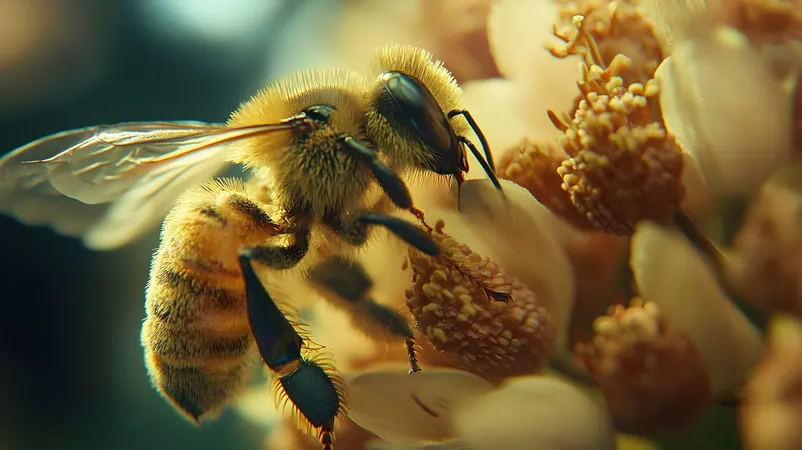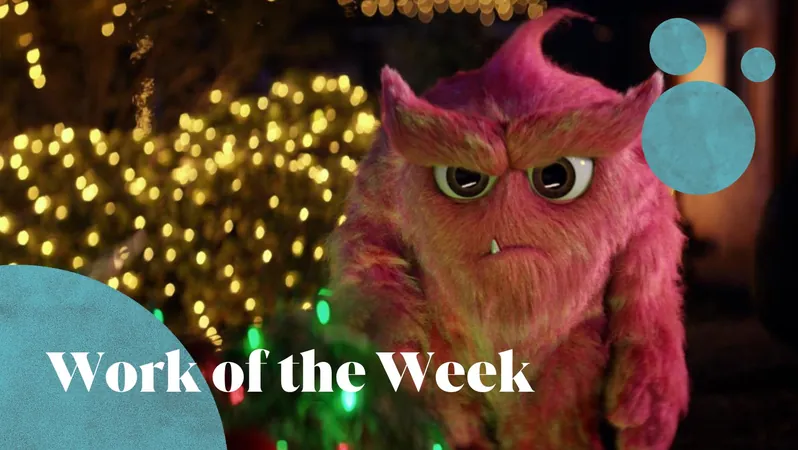
Revolutionary Discovery: A Single Gene Unlocks the Secrets of Bee Social Behavior!
2024-11-09
Author: Li
Introduction
The intricate societies of social insects, particularly bees, have long perplexed scientists. How do these tiny creatures, lacking individual intelligence in the way humans use abstract reasoning, manage to function within complex, organized colonies? Recent research suggests the answer may lie within their DNA.
The Hive Mind
While we often recognize collective intelligence in humans—where a group can overcome challenges through shared insights—the same cannot be said for individual insects. A bee alone does not possess the capability to conceptualize hive organization; thus the mystery of the “hive mind” becomes all the more intriguing.
This so-called hive mind is not merely a whimsical notion; it reflects a deeper biological phenomenon. J. Scott Turner, in his 2017 book *Purpose and Desire*, delves into the behaviors of these creatures, drawing parallels with termite colonies, showcasing their organized structures despite a lack of individual abstraction.
Groundbreaking Research
Recently, Professor Dr. Martin Beye from Heinrich-Heine University Düsseldorf and his research team have shed light on how such complex behaviors may be genetically encoded. Their groundbreaking study, published in *Science Advances*, highlights a specific gene known as dsx, which appears to govern worker bee behavior.
Dr. Vivien Sommer, the lead author of the study, explains the significance: “The dsx gene dictates whether a worker bee undertakes tasks in the colony and how long those tasks are carried out. This encompasses crucial roles like larval care and foraging for resources.” This research suggests that these essential behaviors are inherited rather than learned, revolutionizing our understanding of insect societies.
Utilizing cutting-edge CRISPR/Cas9 technology, the team modified the dsx gene within select bees, tracking their behaviors in the hive with the help of advanced cameras. Lead researcher Wolfgang Rößler noted that their findings indicate a “fundamental genetic program that shapes the neuronal wiring and behaviors typical of worker bees.” Such research promises exciting avenues, as the team hopes to explore whole colonies to fully understand the implications of their discoveries.
Significance of the Discovery
The study underscores an unexpected twist: Unlike in other insect species, the dsx gene plays a critical role in the neuronal architecture of the mushroom bodies in bees—brain regions associated with memory and learning. The implications of this could extend beyond mere curiosity; understanding the genetic basis of these behaviors may lead to insights applicable in various fields, from robotic design inspired by insect problem-solving to better conservation strategies for declining bee populations.
Conclusion
In conclusion, this discovery not only unravels the intricate genetic tapestry that governs bee behavior but also challenges our understanding of intelligence as a concept. As we dive deeper into the nexus between genetics and social structure, we may unlock even more secrets of these fascinating creatures that play such a vital role in our ecosystem.
Stay tuned as we continue to follow this groundbreaking research, which could reshape our understanding of collective behavior not just in insects, but across the animal kingdom!




 Brasil (PT)
Brasil (PT)
 Canada (EN)
Canada (EN)
 Chile (ES)
Chile (ES)
 España (ES)
España (ES)
 France (FR)
France (FR)
 Hong Kong (EN)
Hong Kong (EN)
 Italia (IT)
Italia (IT)
 日本 (JA)
日本 (JA)
 Magyarország (HU)
Magyarország (HU)
 Norge (NO)
Norge (NO)
 Polska (PL)
Polska (PL)
 Schweiz (DE)
Schweiz (DE)
 Singapore (EN)
Singapore (EN)
 Sverige (SV)
Sverige (SV)
 Suomi (FI)
Suomi (FI)
 Türkiye (TR)
Türkiye (TR)